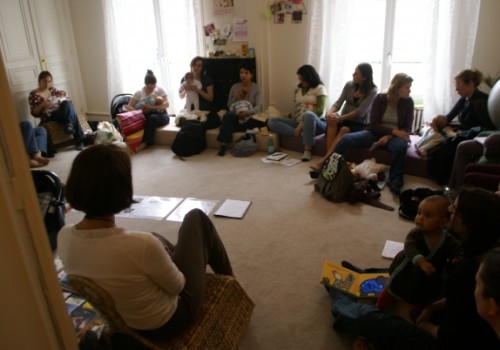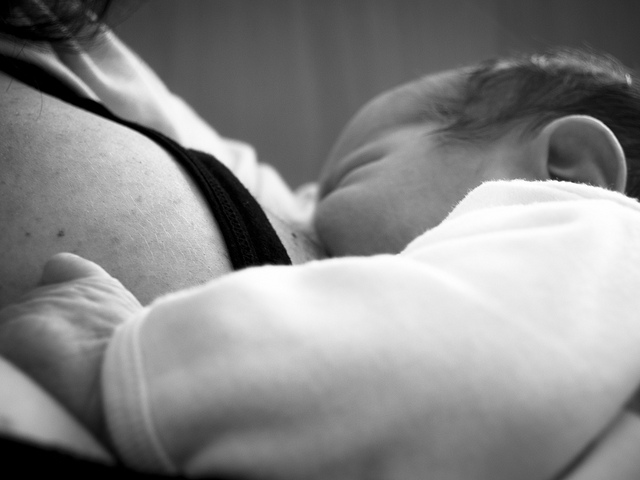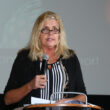My little one came on a warm late November afternoon. After a flawless pregnancy and a trouble free birth, I looked forward to happy days bonding with my new daughter while peacefully nursing.
This didn’t happen.
Instead, I encountered lacerations, extreme pain, and what I later would find out was a tongue-tied baby. For those who aren’t familiar with that term, it means my three-day-old could not effectively remove the milk from my breasts, and consequently she was quickly losing weight and very irritable. (I get cranky when I’m hungry too, don’t you?) I didn’t know enough to know something was wrong. My pediatrician assured me this was all normal and that it would just take time for us to get in a groove. I eventually sought help in a IBCLC Lactation Consultant. With a lot of effort and many tear-filled nights, I was able to get through that exasperating time. We are now exclusively nursing and she is already growing like a weed.
But through all of my struggles in those first couple of months, I found breastfeeding and fertility charting to be awfully similar. Eerily similar.
I do think fertility charting is gaining awareness, but it is still not easy to find support. Your general practitioner, while well-meaning, may not have the tools and education to fully assist you. Seeking and working with a trained professional in NFP will take work if your cycles are erratic and you want to really dig deep to understand why. You need someone who is going to invest time and energy. My Lactation Consultant was a godsend. I felt as if I were her only client and she was available around the clock for texting and phone calls. Breastfeeding was, and still is, a journey. Like fertility charting, it’s valuable to have support along the way. But this support isn’t always easy to find.
I found a lot of hope in support groups. Between La Leche League and other meetups around the city, it was crucial to surround myself with other women who were also journeying on a similar path. In my early days of fertility charting, I began a support group at our church. I thought, “Wait a minute. I’m charting. There’s got to be other women charting. Why don’t we get together and talk about it?” I like to think that when it comes to women’s health, we work best in packs. I could say something about our primitive village tendencies, but I think plain and simple, we learn the best when we bond with others about our experiences. Fertility charting doesn’t have to be kept in the dark, a secret app on our phone, something we hide.

While it’s natural, fertility charting, like breastfeeding, is not really the societal norm. I have never been explicitly shamed for breastfeeding in public, but I do find that it catches people off guard. I think this is simply because we don’t see it very often. We don’t see or hear about ovulation very often either. I’m not saying we need to be inundated with breastfeeding images or slide shows of a menstrual cycle on our daily commute to work, but because these things aren’t part of our daily life or seen in society frequently, there are a lot of myths and misunderstandings surrounding both. If I hadn’t sought help about my breastfeeding pain (and by pain, I mean bleeding nipples to the point where I would cringe whenever my baby would cry for food, which was all the time), I would have thought that maybe it was just normal. This is similar with menstrual pain. Women just assume that the pain of extreme cramps is normal. My pediatrician swore that my baby wasn’t tongue tied. I’m glad I looked for a second opinion. Once I got her tongue revision completed, nursing improved exponentially.
In many ways, I feel that fertility charting prepared me for my struggles in breastfeeding. I learned to dig deep for quality support, find solace in other women, and educate myself past the surface of google. Really, it’s not surprising that the breastfeeding journey and fertility charting journey were so similar. I am grateful that my experience with fertility charting paved the way.








This is wonderful! I love how you emphasize the importance of community. I am very thankful that the hospital where I will be birthing has a full-time, certified lactation consultant available, and the hospital also offers lists and resources for LLL and other local meetups-if only all hospitals offered that to new moms!